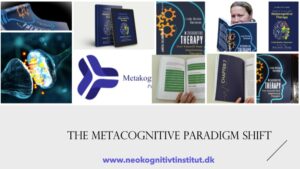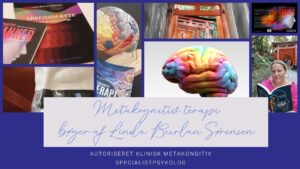Treating Stress with Metacognitive Therapy
– A Handbook for Therapists –
Release date: April 4, on Amazon. Later, the book will be available in multiple formats (e.g., e-pub and audiobook) at several bookstores.
“Treating Stress with Metacognitive Therapy” presents a paradigm shift in stress management. The book challenges traditional views on stress by delving into the often-overlooked realm of metacognitive processes. Rather than attributing stress solely to external circumstances, the book argues that it is our meta-thoughts about stress and our cognitive responses that play a pivotal role in its manifestation.
The book challenges traditional views on stress by delving into the often-overlooked realm of metacognitive processes. Rather than attributing stress solely to external circumstances, the book argues that it is our meta-thoughts about stress and our cognitive responses that play a pivotal role in its manifestation.
The Book delves into the complex nature of stress, distinguishing between acute and prolonged stress and shedding light on the various stressors individuals may face in their personal and professional lives.
Moreover, “Treating Stress with Metacognitive Therapy” delves into the complex nature of stress, distinguishing between acute and prolonged stress and shedding light on the various stressors individuals may face in their personal and professional lives. By understanding the underlying metacognitive management systems that drive behavior, therapists can effectively address the root causes of stress and empower clients to navigate life’s challenges more effectively.
The book also examines the behavioral aspects of stress management, acknowledging that while changes in behavior can be beneficial, they may not address the underlying metacognitive processes driving stress. Sørensen emphasizes the importance of digging deeper to understand the underlying beliefs and thought patterns that influence behavior, highlighting the need to challenge and address these metacognitive processes for lasting relief from stress.
The book also examines the behavioral aspects of stress management, acknowledging that while changes in behavior can be beneficial, they may not address the underlying metacognitive processes driving stress. The author emphasizes the importance of digging deeper to understand the underlying beliefs and thought patterns that influence behavior, highlighting the need to challenge and address these metacognitive processes for lasting relief from stress.
In “Treating Stress with Metacognitive Therapy,” Linda Burlan Sørensen presents five distinct cases that offer insights into the complexities of stress management. Picture a conference room table, where the stories of Birgitte, George, Tine, Steen, and Ditte lay bare their struggles.
Birgitte, once a self-employed hairstylist, grapples with unemployment after a debilitating car accident. George faces workplace bullying, questioning his future at work. Tine, despite career success, juggles overwhelming workloads and past relationship trauma. Ditte’s perfectionism leads to exhaustive efforts in both professional and personal spheres. Meanwhile, Steen, a dedicated teacher, battles insomnia and self-doubt.
Despite their diverse backgrounds, all five individuals are consumed by stress, characterized by rumination and a sense of powerlessness. Their narratives shed light on the pervasive impact of stress on mental well-being and the need for intervention.
The book explores the interplay between societal norms and individual psychology, emphasizing the importance of understanding metacognitive management systems. Through these cases, therapists gain insights into the complexities of stress and the potential of metacognitive therapy for intervention.
These cases serve as clinical examples, offering practical insights into stress management and the application of metacognitive therapy. As therapists navigate the challenges of stress treatment, Sørensen’s work provides valuable guidance for effective intervention and client empowerment.
About the Author
Linda Burlan Sørensen, MSc, is a licensed clinical psychologist, board certified in psychotherapy and supervision, accredited by the Danish Psychological Association. She has authored several books on the metacognitive approach, demonstrating her dedication to ongoing professional growth through continuous exploration of innovative therapeutic methodologies.
and supervision, accredited by the Danish Psychological Association. She has authored several books on the metacognitive approach, demonstrating her dedication to ongoing professional growth through continuous exploration of innovative therapeutic methodologies.
She is a world traveler who is greatly inspired by the rich cultures of Southeast Asia, especially Thailand and Japan. Linda has a broad range of interests and passions, including Hans Christian Andersen’s wonderful stories, Einstein’s theory of relativity, Vincent van Gogh’s painting Starry Night, Sumo wrestling, LEGO, Agatha Christie’s suspenseful novels, and Verdi’s opera Rigoletto, to name some of many.
Linda Burlan Sørensen is the founder of The Neocognitive Institute in Copenhagen, which besides psychotherapy, also offers professional courses, education, and supervision.





